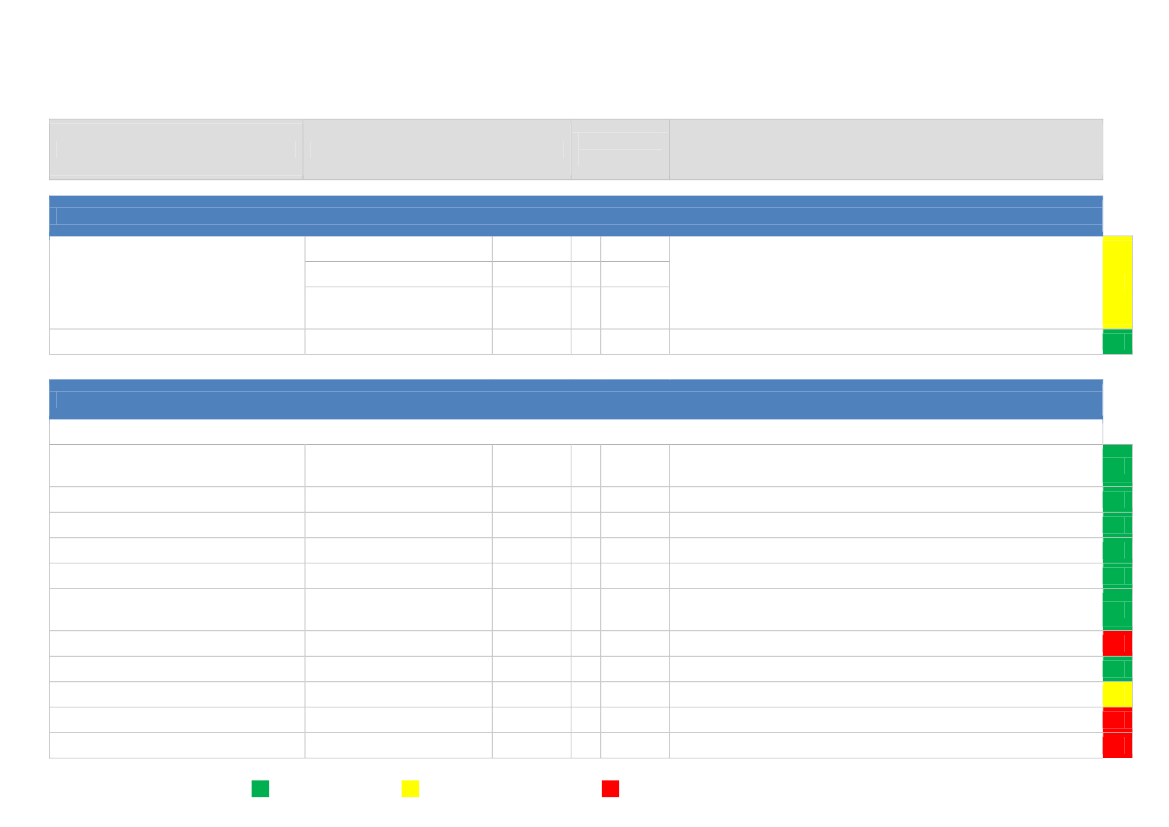Det Udenrigspolitiske Nævn 2012-13
UPN Alm.del Bilag 258
Offentligt
The Compact for Growth andJobs: one year onReport to the European Council,27-28 June 2013
THE COMPACT FOR GROWTH AND JOBS: ONE YEAR ONREPORT TO THE EUROPEAN COUNCIL, 27-28 JUNE 2013The Compact for Growth and Jobs agreed by Heads of State or Government at the European Councilin June 2012 contains a wealth of measures to help Europe move beyond the economic and financialcrisis and to create smart, sustainable, inclusive, resource-efficient and job-creating growth. Thisreport and the accompanying annex take stock of progress and highlight where efforts must beredoubled in order to promote growth and jobs.With Europe's growth prospects still uncertain and unemployment at unacceptable levels, particularlyamong young people, decisive action to unlock Europe's growth and employment potential is moreurgent than ever. Fast-acting, pro-growth measures are an essential complement to the ongoing workto tackle the root causes of the crisis, to return public finances to health, to put in place the tools toreinforce the coordination of economic policies, to safeguard financial stability and to deepen theEconomic and Monetary Union.The implementation of the Compact for Growth and Jobs is a shared responsibility. By undertakingessential reforms at national level, as described in the Commission's proposed Country-SpecificRecommendations, Member States can take a decisive step towards a more competitive, dynamic andflexible European economy. The EU supports and complements these reforms in a variety of ways,from the ongoing work to unlock the full growth potential of the single market to financial supportfrom the EU budget, Europe's growth and investment fund.In every area of the Compact, the Commission has presented clear strategies and proposals geared togrowth and jobs. The priority now is implementation. As this report illustrates, some of theCommission's proposals have been adopted but many others have not yet been agreed or are still tobe implemented. These delays mean that business opportunities are lost and that much needed jobsare not created.The MFF is a particular case in point. It represents an investment fund of almost one trillion euro (EUR960 billion) which, if agreed, will provide a much-needed boost to the European economy as from 1January 2014. However, without a final agreement between the European Parliament and the Councilon the MFF and on all the investment programmes that implement it, the funding will not get to whereit is needed, when it is needed.The Compact reflects a European consensus on what needs to be done. Now a consensus is neededto follow up and implement the actions that have been agreed upon without delay. The Commissionwill continue to bring forward the right proposals and to work with Member States to bring Europeanand national efforts together in a partnership for growth.
Reforming the European economyReforming and modernising the European economy remains central to the Europe 2020 growthstrategy and is a prerequisite for future prosperity and stability. Through the European Semester, theCommission works together with the Member States to identify the top reform priorities and to ensurethat the deep interdependence between national economies is taken fully into account.
1
The Commission has highlighted the top priorities for reform through its Annual Growth Survey andCountry-Specific Recommendations for 2013. The experience of implementation in 2012 was mixed:the Commission's analysis shows that Member States could do more to help themselves get back togrowth and move Europe beyond the crisis. Progress has been made but to varying degrees and thepace of reform does not yet reflect the scale of Europe's growth and competitiveness challenges. Thepriorities for reforms in 2013 therefore remain the same as in 2012: pursuing differentiated, growth-friendly fiscal consolidation; restoring normal lending to the economy; promoting growth andcompetitiveness for today and tomorrow; tackling unemployment and the social consequences of thecrisis; and modernising public administration.Strong endorsement of the Country-Specific Recommendations by the June European Council must befollowed swiftly by formal adoption by the Council and immediate and determined implementation atnational level.
Unlocking the growth potential of the Single MarketThe single market is a unique and powerful engine of growth. The Commission has put forward twoambitious single market reform packages which have the potential to take the single market to thenext level. However, progress has so far fallen short of expectations.The Commission has now tabled all 12 of the priority proposals from the Single Market Act I. TheEuropean Council set a deadline of December 2012 to agree them at European level. To date, only 7have been agreed. These include the unitary patent which, once implemented, will reduce the cost ofobtaining patent protection in the EU by up to 80%, boosting innovation and contributing to economicgrowth. However, 5 measures with huge potential to boost the economy are still pending after thedeadline. These include key proposals on public procurement, on which agreement between theEuropean Parliament and Council is within reach. The potential benefits to the EU economy aresignificant: for example, if the cost of public procurement contracts subject to EU directives could bereduced by 5% by 2020, EU GDP and employment could increase by 0.1% - 0.2%.Acceleration is also required on the 12 measures comprising the Single Market Act II. Most of theseproposals are on the table and the Commission will present the remainder in the coming weeks. Tomeet the 2014 deadline, a huge effort is required by all concerned. Agreement on key proposals suchas the reform of insolvency rules, the fourth railway package, product safety and high-speedbroadband infrastructure will require intensive work and strong political will.Of course, agreement at EU level is not the end of the story. Much of the untapped potential of thesingle market lies in a failure to implement properly and expeditiously what has been agreed. Forexample, the implementation of the services directive has already boosted EU GDP by 0.8% butCommission analysis shows that if Member States were to abolish the remaining restrictions, thepotential economic gain is three times bigger – about 2.6% of EU GDP. A renewed focus onimplementation at national level is therefore an essential part of Europe's growth strategy. TheCommission set out a number of practical steps to improve the governance of the single market andthe implementation of the services directive in June 2012.
2
Achieving a Digital Single MarketThe European Council set a deadline for achieving a Digital Single Market by 2015. Studies estimatethat full implementation of the Digital Agenda for Europe could increase GDP by 5%, or €1500 perperson, over the next eight years, through measures including the improvement of e-Skill levels in thelabour force and reforming the framework conditions for the internet economy. Up to one milliondigital jobs risk going unfilled by 2015 without pan-European action. Moreover, 1.2 million jobs couldbe created through infrastructure construction. This could rise to 3.8 million new jobs throughout theeconomy in the long term. The stakes are therefore very high.With the 2015 deadline fast approaching, acceleration is required on the measures currently underconsideration in the European Parliament and Council, such as the modernisation of certain key areasof copyright such as collective rights management and proposals on high-speed broadbandinfrastructure and e-identification and e-signatures. The digital strand of the Connecting EuropeFacility will, once agreed, also help to catalyse broadband investment and the development of digitalservices.The Commission will make further proposals to establish a single market for telecommunicationsahead of the October meeting of the European Council.
Completing the Internal Energy MarketThe May European Council underlined the importance of delivering a fully functioning, interconnectedand integrated Internal Energy Market by 2014 to intensify price competition, end energy isolation ofcertain regions and to enable a coordinated response to supply crises.However, implementation is behind schedule. For example, as the Commission stressed in its recentCommunication on Completing the Internal Energy Market, the Third Energy Package which enteredinto force in 2009, is yet to be implemented in many Member States. On-going work on the cost ofthe absence of an integrated European energy market for gas suggests that the benefits of the fullimplementation of the third energy package in 2015 compared to 2012 (base case) could reach EUR 8billion per year. These benefits could reach EUR 30 billion per year if Europe had a fully integratedmarket. In electricity, the benefit of integration would be annual cost savings of up to EUR 35 billion.Completing the European gas and electricity networks is a prerequisite for completing the internalenergy market and so public and private investment should be stepped up. Estimates suggest that upto EUR 1 trillion in investment is required by 2020. A rapid agreement on the Connecting EuropeFacility will provide a powerful catalyst for these investments.
Completing the European Research AreaLasting economic recovery requires a world-leading research and innovation capacity, built on astrong public science base, capable of bringing excellent results to market to tackle the major issuesaffecting the lives of European citizens. Building an Innovation Union is central to creating a vibranteconomy fuelled by ideas and capable of competing in new markets for knowledge-intensive productsand services, and creating growth and quality jobs. To achieve this, Europe must increase theefficiency, effectiveness and excellence of its public research system.
3
An ambitious timetable has been set out for the completion of the European Research Area (ERA) by2014. Commission estimates suggest that the combination of the completion of the ERA and theimplementation of the EU's new research and innovation funding programme – Horizon 2020 – couldgive rise to an extra 1% of growth and almost 1 million more jobs per annum by 2030.Important progress has been made. For example, the unitary patent was adopted by 25 MemberStates under reinforced cooperation. However, Europe is still some way from a unified research area.The European Parliament and the Council must now agree urgently on the new Horizon 2020 andCOSME programmes to support investment in research and innovation within the next MFF. TheCommission’s Communications on Key Enabling Technologies and on Modernising Industrial Policy alsorequire thorough follow-up at EU and national level.The Commission will report on the completion of the European Research Area and on investment andreform in the innovation economy for the October meeting of the European Council.
Investing in growthThe EUR 120 billion investment package outlined in the Compact is in place but has not yet been usedto its full potential.Following a further commitment of EUR 54.2 billion in March of this year, the Commission has nowmade the entire EU cohesion policy budget – EUR 346 billion – for the 2007-2013 programmesavailable to support growth and job creating projects in the Member States. The Commission has alsoworked closely with Member States, for example through the Youth Employment Action Teams, toensure that this funding is targeted at the top growth priorities. More than EUR 39.2 billion – or 11%of the total funds – was reprogrammed by the end of May 2013 to support the most pressing needs.The Commission also approved reductions in national co-financing requirements for some MemberStates to ensure that EU funding continues to flow even when national budgets are under stress.The ability of EU structural fund investments to reenergise the European economy depends both onthe delivery of high quality projects in the Member States and on the availability of credits for theCommission to make the payments when they fall due. Member States should therefore focus on thefull implementation of the current programmes and the European Parliament and Council should agreeon the amending budget for 2013 without delay.The next Multiannual Financial Framework is due to begin on 1 January 2014. The preparation of thenext generation of programmes is a golden opportunity to put the EU structural and investment fundsto work both to boost growth and jobs in the immediate term and to galvanise the national reformprocess. A delay to the new programmes would be highly damaging for confidence and so a finalagreement on the next MFF and the programmes implementing it is an urgent priority.The decision to increase the capital of the EIB by EUR 10 billion has been a positive step for financingthe real economy and restoring growth and confidence. The objective of the capital increase is toincrease the EIB's overall lending capacity by EUR 60 billion. This will unlock up to EUR 180 billion ofadditional investment, spread across the EU, including in the most vulnerable countries. TheCommission has been working closely with the EIB to implement the capital increase and to agree onpriority areas (reflecting the Europe 2020 objectives) where the increased lending will be targeted.The Commission is also working with the EIB to develop Joint Instruments to support lending to SMEs.
4
Tax policy for growthAn enlightened tax policy and efficient tax systems can be an important driver of growth and socialjustice and can facilitate essential fiscal consolidation. This is why the reform of tax systems figuresprominently for many Member States in the Country-Specific Recommendations. More effort isrequired to shift the tax burden away from labour towards less distortive tax bases such asconsumption, environment and property taxes, to broaden tax bases, and to address tax complianceissues and to improve the efficiency of tax administration.In view of the closer integration of the European economies and the accompanying high volumes ofcross-border transactions, these national reforms must be accompanied by ever closer cooperationbetween national tax administrations. The Commission has proposed an extension of the currentsystem of automatic information exchange to cover the full range of income by 2015. This will beparticularly important for the fight against tax fraud and evasion, for which an action plan has beenproposed, including proposals for strengthening cooperation between the Member States.The recent agreement on the savings tax mandates for negotiation with third countries was awelcome step but agreement on the revisions to the Savings Taxation Directive must follow andprogress has been too slow on many of the Commission’s key proposals, such as the CommonConsolidated Corporate Tax Base, and energy taxation.It is also time to accelerate the on-going work on the Financial Transaction Tax. This will help toensure that the financial sector makes a fair contribution to the costs of the crisis.
Creating jobs and a genuine European labour marketThe Commission has presented several initiatives in order to boost labour mobility and to help createa genuine European labour market. For example, in October 2012, the Commission adopted a decisionfor modernising the EURES network and has also adopted a Directive to help workers exercise theirrights in the context of freedom of movement aiming at supporting workers' integration into their newsocieties. Very recently, the Commission adopted a Decision to formalise the existing network of PublicEmployment Services that would contribute to strengthening the coordination at EU level ofemployment policies.High unemployment, particularly among the young, is one of the greatest economic and social andchallenges facing Europe. As described in the accompanying report on youth employment, youthunemployment has reached unacceptably high levels and urgent action at both national and Europeanlevel is required to help get young people back into the labour market, education or training.The Commission adopted a Youth Employment Package last December presenting a proposal for aYouth Guarantee. The Council has agreed the Youth Guarantee, which should now be implemented atnational level. This will be supported by the EU structural funds. To be ready for the beginning of2014, swift agreement is needed on the new structural fund regulations and on the EUR 6 billionYouth Employment Initiative. Member States and the Commission are finalising their PartnershipAgreements and Operational Programmes for the next period, which should ensure that funding isconcentrated on the top growth and job-creating priorities.Furthermore, the Communication on education and skills should be followed up at EU and nationallevel and more progress is needed on mobility-friendly measures such as those on the portability ofpension rights and the recognition of professional qualifications in order to help build a genuineEuropean labour market.
5
Harnessing the growth potential of tradeMuch progress has been made in recent months to exploit the growth potential of trade. In addition toongoing negotiations with a number of key international partners, negotiations will be launchedshortly with the US now that the draft negotiation directives submitted by the Commission have beenagreed. These negotiations have huge potential in terms of growth and jobs: an EU-US trade dealwould be the biggest ever negotiated and could add around 0.5% to the EU's annual economicoutput.Work on the Commission's proposal on access to third country public procurement markets stillrequires agreement from Council and Parliament and should be accelerated. This measure would helpto ensure that all companies (both European and non-European) are on an equal footing when itcomes to competing for business in the EU's lucrative public procurement market.
Creating the right regulatory framework for growthSmart regulation is a joint responsibility of the Commission and the Member States. From its state-of-the-art impact assessment system to the evaluation of existing EU legislation, the Commission hasstepped up its efforts to ensure that the EU pursues its objectives in a way that does not create undueburdens for Europe's businesses, citizens and public administrations. In turn, the European Parliamentand Council must be vigilant when amending Commission proposals and Member States should refrainfrom creating additional burdens when implementing European rules.The Commission has made a range of proposals for the reduction of administrative burden - especiallyfor SMEs - and has already delivered on its target of cutting 25% of the administrative burdenstemming from EU legislation. The measures adopted at EU level by December 2012 are worth EUR30.8 billion in annual savings for businesses. However, the full burden reduction potential of theCommission's proposals is closer to EUR 41 billion and so there is more work to be done in theEuropean Parliament and Council.The Commission’s REFIT programme and the SME scoreboard will ensure that burdens are kept underconstant review, while the Commission will follow-up on the concerns raised by SMEs through the 'Top10' exercise, as announced in the accompanying Communication.Improvements to the regulatory framework also include the Entrepreneurship 2020 Action Plan whichmust be followed up at EU and national level. It is important that the ambitious Commission proposalsare maintained in the Council and fully implemented in the Member States.
Deepening EMU and promoting financial stabilityStability is a precondition for sustainable growth. Completing the architecture of the Economic andMonetary Union (EMU), particularly the Banking Union, will be essential for underpinning futuregrowth and preventing the re-emergence of imbalances.The implementation of the Single Supervisory Mechanism and rapid progress on the Commission'sforthcoming proposal for a Single Resolution Mechanism are both vital building blocks in this process.The Commission has set out a comprehensive vision for the deepening of the EMU in the Blueprint for
6
a Deep and Genuine EMU and has subsequently elaborated on how stronger ex ante policycoordination and a Competitiveness and Convergence Instrument could be introduced.It is important that momentum is maintained on all these fronts to ensure that Europe's economicrecovery is built on the strongest possible foundations.***One year after the Heads of State or Government decided on the Compact for Growth andJobs, the European consensus between the Member States and the European institutionsmust be translated into concrete results in terms of growth and jobs. The Commission willcontinue to play its role to the full and calls upon:the European Council to reaffirm the urgency of delivering on every aspect of the Compact forGrowth and Jobs;Member States to pursue their reform efforts with courage and determination, in line with theCountry-Specific Recommendations to be agreed in July 2013; andthe European Parliament and the Council to accelerate adoption of those proposals with themost growth-enhancing potential.
7
Progress in implementing the Compact for Growth and Jobs
Action
What has Commission contributed?
Agreed atEU level?
What happens next?
REFORMING THE EUROPEAN ECONOMYEurope 2020 strategy / EuropeanSemester/ implementing new tools foreconomic governance / peer pressureAnnual Growth Survey 2013Alert Mechanism ReportCountry-SpecificRecommendations for 2013'Two-pack'Legislative proposals11/201211/201205/201311/2011x03/2013ImplementationCountry-Specific Recommendations for 2013 to be endorsed byJune European Council, adopted by Council in July andimplemented at national level.
DEEPENING THE SINGLE MARKETSingle Market Act I, deadline end 2012European StandardisationSystemUnitary patent protectionVenture Capital FundsSocial Investment FundsAlternative Dispute ResolutionSimplification of AccountingDirectivesEnergy Taxation DirectiveProfessional qualificationsPublic procurementPosting of workersE-identification and signaturesLegislative proposalLegislative proposalLegislative proposalLegislative proposalLegislative proposalLegislative proposalLegislative proposalLegislative proposalLegislative proposalLegislative proposalLegislative proposal06/201104/201112/201112/201111/201110/201104/201112/201112/201103/201206/2012Xxxx06/201310/201212/201203/201303/201304/201306/2013ImplementationImplementationImplementationImplementationImplementationFormal adoptionPolitical agreement requiredFormal adoptionPolitical agreement requiredPolitical agreement requiredPolitical agreement requiredNo / little progress
Overall State of Play:
On track
More effort required
1
Action
What has Commission contributed?
Agreed atEU level?
What happens next?
InfrastructureTEN-EnergyTEN-TransportTelecomsLegislative proposals10/2011x04/201306/2013ImplementationFormal adoptionPolitical agreement required.
Single Market Act II, deadline Q2 2014Reform of insolvency rules4thRailway PackageMarket surveillance andproduct safetyUpgraded EURES portalHigh-speed broadbandinfrastructureThird Energy PackageLong-term investment fundsMaritime transportSingle European SkyElectronic payment servicesE-invoicing in publicprocurementBanking servicesLegislative proposalLegislative proposalPackageCOM autonomous actLegislative proposalLegislative proposalsLegislative proposalPackagePackageLegislative proposalLegislative proposalLegislative proposalCommunication, Report,ScoreboardCommunication12/201201/201302/201311/201203/201309/2007Q2 2013Q2 201306/2013Q3 2013Q2 201305/2013201206/2012xxxxxxxxxxn/an/a07/2009Political agreement requiredPolitical agreement requiredPolitical agreement requiredImplementationPolitical agreement requiredImplementationCommission proposal under preparationCommission proposal under preparationPolitical agreement requiredCommission proposal under preparationCommission proposal under preparationPolitical agreement requiredFollow-up at EU and national levelFollow-up at EU and national level
Improving Single Market GovernanceImplementation of Services Directive
Overall State of Play:
On track
More effort required
No / little progress
2
Action
What has Commission contributed?
Agreed atEU level?
What happens next?
ACHIEVING A DIGITAL SINGLE MARKET BY 2015Digital Agenda / completion of DigitalSingle MarketE-identification and signaturesModernisation of copyright regimeOrphan worksCollective Rights ManagementFuture of copyrightLegislative proposalLegislative proposalCommunicationLegislative proposalLegislative proposalLegislative proposal05/201107/201212/2012Q2 201303/201310/2011xn/axxx10/2012ImplementationPolitical agreement requiredFollow-up at EU and national level. Follow up to Commission reviewto be announced in 2014Commission proposal (part of SMA II)Political agreement required (part of SMA II)Political agreement requiredMid-term reviewLegislative proposal12/201206/2012XFollow-up at EU and national level. Discussion in European CouncilOctober 2013Political agreement required (part of SMA I)
E-invoicing in public procurementHigh-speed broadband infrastructureConnecting Europe Facility
COMPLETING THE INTERNAL ENERGY MARKET BY 2014Completing the Internal Energy MarketThird Energy PackageConnecting Europe FacilityEnergy Taxation DirectiveTEN-EnergyEnergy efficiencyCommunicationLegislative proposalsLegislative proposalsLegislative proposalLegislative proposalLegislative proposal11/201209/200710/201104/201110/201106/2011xx04/201310/201207/2009Follow-up at EU and national levelImplementation (part of SMA I)Political agreement requiredPolitical agreement required (part of SMA I)Implementation (part of SMA I)Implementation
Overall State of Play:
On track
More effort required
No / little progress
3
Action
What has Commission contributed?
Agreed atEU level?
What happens next?
COMPLETING EUROPEAN RESEARCH AREA BY 2014Strengthening the European ResearchAreaInvestment in research and innovation(Horizon 2020 and COSME)Key enabling technologies (KETs)Modernising industrial policyUnitary patent protectionCommunicationLegislative proposalsCommunicationCommunicationLegislative proposal07/201211/201106/201210/201204/2011x12/2012Follow-up at EU and national level, Commission to report onprogress ahead of October European CouncilPolitical agreement requiredImplementation through Horizon 2020, structural fund programmesand national programmesFollow-up at EU & national level. Debates in European Council June2013 and Feb 2014, implementation progress report Q3 2013Implementation (part of SMA I)
INVESTING IN GROWTHIncrease in EIB Capital by Dec 2012Project bondsReprogramming EU structural fundsBudget 2013MFF 2014-2020Future cohesion policyn/aCommission-EIBcooperation agreementAction team initiative withMember StatesBudget proposalBudget proposalLegislative proposaln/a11/201201/201204/201206/201110/2011n/aXXx€ 10 billion increase to be reflected in lending programmes.Commission / EIB to report to June European Council on progress€ 230 million to be mobilised in 2013 for transport, energy and ICTCommission / EIB to report to June European Council on progress€ 39.2 billion reprogrammed; to be implemented at national levelAgreement required on amending budgetPolitical agreement requiredPolitical agreement required
Overall State of Play:
On track
More effort required
No / little progress
4
Action
What has Commission contributed?
Agreed atEU level?
What happens next?
TAX POLICY FOR GROWTHSavings taxation directiveThird country negotiating mandatesCommon Consolidated Corporate TaxBaseTax fraud and evasionFinancial Transaction TaxLegislative proposalProposal for mandateLegislative proposalAction Plan and 2recommendationsLegislative proposal11/200805/201203/201112/201202/2013xxx05/2013Political agreement requiredNegotiations to start with third countriesPolitical agreement requiredFollow-up at EU and national levelPolitical agreement required
CREATING JOBS AND A GENUINE EUROPEAN LABOUR MARKETEmployment policyYouth unemploymentYouth Opportunities InitiativeYouth Employment Package(incl. Youth Guarantee)Youth Employment InitiativeCommunicationCommunication andproposalLegislative proposalCommunicationLegislative proposalLegislative proposalLegislative proposal12/201112/201203/201311/201210/200503/201212/2011xxxxFollow-up at EU and national levelFollow-up at EU and national level following Council agreement inFebruary 2013Political agreement requiredFollow-up at EU and national levelPolitical agreement requiredPolitical agreement required (part of SMA I)Political agreement required (part of SMA I)Employment package04/2012Follow-up at EU and national level
Education and skillsPortability of pension rightsPosting of workersProfessional qualifications
Overall State of Play:
On track
More effort required
No / little progress
5
Action
What has Commission contributed?
Agreed atEU level?
What happens next?
HARNESSING THE GROWTH POTENTIAL OF TRADETrade agreementsUS03/2013Mandateagreed06/201302/2013Negotiations to be launched
Peru and ColombiaCanadaSingaporeIndiaJapanUkraineEgypt, Jordan, TunisiaMoroccoGeorgia, Moldova, ArmeniaVietnamThailandCentral AmericaLegislative proposal03/2012Proposals for negotiatingmandates and negotiationon basis of agreedmandates
ImplementationNegotiations to be finalisedAgreement to be initialledNegotiations to continueNegotiations have startedAgreement to be signed dependent on fulfilment of conditions
Various
Mandatesagreed
Negotiations to beginNegotiations have startedNegotiations to continueNegotiations to continueNegotiations have startedNegotiations to be finalised
Access to third country publicprocurement markets
x
Political agreement required
Overall State of Play:
On track
More effort required
No / little progress
6
Action
What has Commission contributed?
Agreed atEU level?
What happens next?
CREATING THE RIGHT REGULATORY FRAMEWORK FOR GROWTHSmart RegulationEU Regulatory Fitness('REFIT ')SMEs and microsCutting administrative burdenCommunicationCommunicationLegislative proposalsAction Plan12/201203/2013Various01/2013n/an/aPartiallyFirst results of the REFIT programme to be presented to EuropeanCouncil in June 2013 (Top Ten Consultation), and Oct 2013Follow-up at EU and national level, including via Top TenConsultation and ScoreboardAdoption in legislative procedure and implementation at nationallevelFollow-up at EU and national level
Entrepreneurship 2020 Action Plan
DEEPENING EMU AND PROMOTING FINANCIAL STABILITYDeepening EMUBlueprint and follow upConvergence andCompetitiveness InstrumentEx-ante coordination majoreconomic policy reformsBlueprintCommunicationCommunication11/201203/201303/2013n/an/aDiscussion at June European CouncilDiscussion at June European Council
Banking UnionSingle Supervisory MechanismSingle Resolution MechanismOther measures, includingDeposit guarantee schemesFramework for national resolutionLegislative proposalLegislative proposal07/201006/2012xxPolitical agreement requiredPolitical agreement requiredLegislative proposalsLegislative proposal09/201206/2013x04/2013ImplementationCommission proposal under preparation
Overall State of Play:
On track
More effort required
No / little progress
7
















